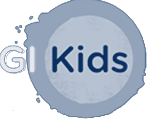Continuing Medical Education (CME)
The North American Society for Pediatric Gastroenterology, Hepatology and Nutrition (NASPGHAN) is accredited by the Accreditation Council for Continuing Medical Education to provide continuing medical education for physicians.
All of our active CME/MOC Part II courses are now located on LearnOnLine, our online education platform.

2025 Upcoming WEBINARS
NASPGHAN Foundation Grant Orientation Webinar 2025
Wednesday April 2, 2025
8PM ET
Join the co-chairs of the NASPGHAN Grants Subcommittee of the Research Committee for an informative session on “how to apply” to the wide variety of NASPGHAN Foundation grants available for all career levels and a variety of topic interests. Grants range from young investigator and midcareer awards to clinical innovation and pilot grants. Get answers to the most frequently asked questions and learn how to apply for one of the numerous NASPGHAN Foundation grants available in 2025.
Writing the Best Manuscript Possible
Wednesday, April 16, 2025
8PM ET
The underlying premise of a publication-worthy manuscript (and the research supporting it) is that it provides insight to the readers regarding a clinically or biologically relevant question. This webinar aims to offer suggestions to fellow and junior faculty as to how to write the best manuscript possible. Our distinguished speakers will review the details surrounding manuscripts, including methods, ethical considerations, biostatistics, results, discussions, figures, tables and conclusions. Guidance will be given as to how to respond to reviewers. Specific requirements for JPGN and JPGN Reports will also be discussed. Join moderators Dr. Kathleen Schwarz and Dr. Nitika Gupta, and a speaker panel featuring Susan Baker, MD, PhD, Sandeep Gupta, MD, Sanjiv Harpavat, MD, PhD, Veronique Morinville, MDCM, FRCPC and Edwin de Zoeten, MD, PhD.
Wednesday, April 30, 2025
8PM ET
Diagnosing and treating children with neurodevelopmental disorders – including autism, cerebral palsy, and other genetic conditions – presents a unique set of challenges for gastrointestinal disorders. These children often experience a higher prevalence of GI issues which can exacerbate their behavioral and sensory sensitivities. The overlap between GI symptoms and behavioral issues can make it difficult to identify the root cause of distress, complicating diagnosis and treatment.
Communication barriers due to diagnoses, caregiver and patient-imposed dietary restrictions, pediatric feeding disorders and variable growth charts can further complicate nutritional management. Providers need a lower threshold for considering diagnostics and treatment, and the patient may benefit from a collaboration between their provider and behavioral therapists, psychiatrists, neurologists and developmental pediatricians.
This webinar aims to provide high-yield evidence and experience-based practical clinical tools, and will touch on innovation, research, technology and advocacy in this area.
ON DEMAND WEBINARS
Pediatric Intestinal Failure patients are unique and complex, and they have management practices and indications that are specific to them. This webinar will discuss intestinal failure with a focus on strategies to enhance intestinal adaption, facilitate enteral autonomy, minimize nutritional deficiencies, promote growth and development, and maximize the quality of life. A multidisciplinary approach is critical at all ages and stages, and our distinguished panel will present on the current state of intestinal failure management and advancements in the field of intestinal transplantation.
The Aerodigestive Patient Presenting with Reflux
Children with aerodigestive disorders may have complex anatomic and functional aberrations of their airway and gastrointestinal tract, necessitating medical and surgical evaluation and intervention in a multi-disciplinary setting. While many pediatric medical centers across the country have developed the needed care clinics, there is still a demand for access to this type of specialized care with the increasing prevalence of aerodigestive patients in pediatric GI practices. This webinar will provide the clinical and diagnostic tools for pediatric GI clinicians to effectively manage GERD in a child with aerodigestive disorder.
Advances in Pediatric Endoscopic Modalities for GI Motility Disorders
Pediatric endoscopy has revolutionized the way we diagnose and treat NGM disorders in children. Although PNGM disorders are prevalent, remarkable progress has been made in the last decade. Novel modalities such as functional lumen imaging probe, per-oral endoscopic myotomy (POEM), gastric-POEM and electrocautery incisional therapy have changed the diagnostic and therapeutic landscape of PNGM. Access to these modalities remains limited, and there is a lack of awareness on the indications and feasibility of these techniques. This webinar aims to increase that awareness, and raise of level of understanding on when to utilize the advanced modalities in order to improve patients’ outcomes and quality of life.
Joint NASPGHAN PASPGHAN Webinar - Celiac Disease: Current Guidelines and Practice Realities on Both Sides of the Atlantic.
Debate on Diagnostic Strategies: To Biopsy or Not To Biopsy?
What to do with Difficult Cases: Practice Management and Patient Follow Up
Navigating Endoscopic Procedure Complications
Endoscopic procedures in pediatric patients can result in a unique set of challenges and complications. This webinar will bring in-depth knowledge and practical strategies for preventing, identifying and managing key complications such as perforation, bleeding and post-polypectomy issues, along with expert guidance on managing stricture dilation in young patients. Don’t miss this opportunity to advance your expertise in the dynamic and delicate field of pediatric gastrointestinal care.
Navigating the Rapidly Changing Landscape of EoE Treatment
The last two years have seen rapid advancement in therapy options for EoE, moving beyond dietary elimination, off-label use of proton pump inhibitors and swallowed topical steroids. In May of 2022, dupilumab became the first FDA approved medication for EoE in patients 12 years and older, and January 2024 brought approval for ages 1-11. Next came the first and only oral medication approved for EoE - budesonide oral suspension EOHILIA. These changes have resulted in questions around best approaches and practices in treating EoE patients. Our webinar will deliver a particular focus on new medication options for pediatric patients with EoE as well as challenges faced by clinicians and patients.
Emerging Trends in Pediatric Esophageal Dysphagia
There are multiple causes for esophageal dysphagia in children – some are congenital while others are acquired – and addressing swallowing issues in pediatric patients requires a comprehensive approach. It is vital for providers to understand the clinical presentations associated with these conditions.
Join Emerging Trends in Pediatric Esophageal Dysphagia to hear our expert panel discuss the full range of diagnostic modalities available, the appropriate timing for endoscopy, diagnostic techniques such as EndoFlip and the different treatment options for dysphagia based on its underlying etiology.
Supported by an educational grant from Medtronic.
Children diagnosed with FAPDs are more likely to have decreased quality of life and to develop psychiatric or psychological comorbidities. Vital to the clinical success of the patient is both the patient and the family’s understanding and belief in the diagnosis.
This webinar will bring you a detailed discussion on the importance of often overlooked factors, including the important role of the patient-provider relationship, identifying and navigating impactful family dynamics and the role of an integrative therapeutic approach that all have a significant impact on clinical outcomes.
Pediatric gastroenterologists are frequent users of technology, but most practitioners use existing offerings provided to them by the hospital.
This webinar will provide an understanding of the process to evaluate new technology, describe the basics of developing a business plan, explain the concept of healthcare value in evaluating new technology and understanding the reimbursement/coding plan the new device or technology would utilize.
Supported through educations grants from EvoEndo, Medtronic and Neuraxis.
Current Concepts in Pediatric Dysphagia: Oropharyngeal, Esophageal and the Extremes
Pediatric dysphagia, or difficulty swallowing, affects children ages 3 to 17 in the United States. While there are four phases of the physiologic swallow, clinicians frequently evaluate and manage symptoms associated with the oropharyngeal and esophageal phases.
There are numerous possible diagnoses that may contribute to dysphagia and its sequelae, and therefore effectively navigating the investigative process can be challenging.
The development of new diagnostic techniques have shown to be beneficial in recognizing underlying pathophysiology, in addition to identifying new diagnoses.
Current Concepts in Pediatric Dysphagia: Oropharyngeal, Esophageal and the Extremes aims to provide a detailed discussion on the novel diagnostic techniques and therapeutic management of these disorders, including supragastric belching and retrograde cricopharyngeal dysfunction.
Navigating the Rapidly Changing Landscape of EoE Treatment
The last two years have seen rapid advancement in therapy options for EoE, moving beyond dietary elimination, off-label use of proton pump inhibitors and swallowed topical steroids. In May of 2022, dupilumab became the first FDA approved medication for EoE in patients 12 years and older, and January 2024 brought approval for ages 1-11. Next came the first and only oral medication approved for EoE - budesonide oral suspension EOHILIA. These changes have resulted in questions around best approaches and practices in treating EoE patients. Our webinar will deliver a particular focus on new medication options for pediatric patients with EoE as well as challenges faced by clinicians and patients.





